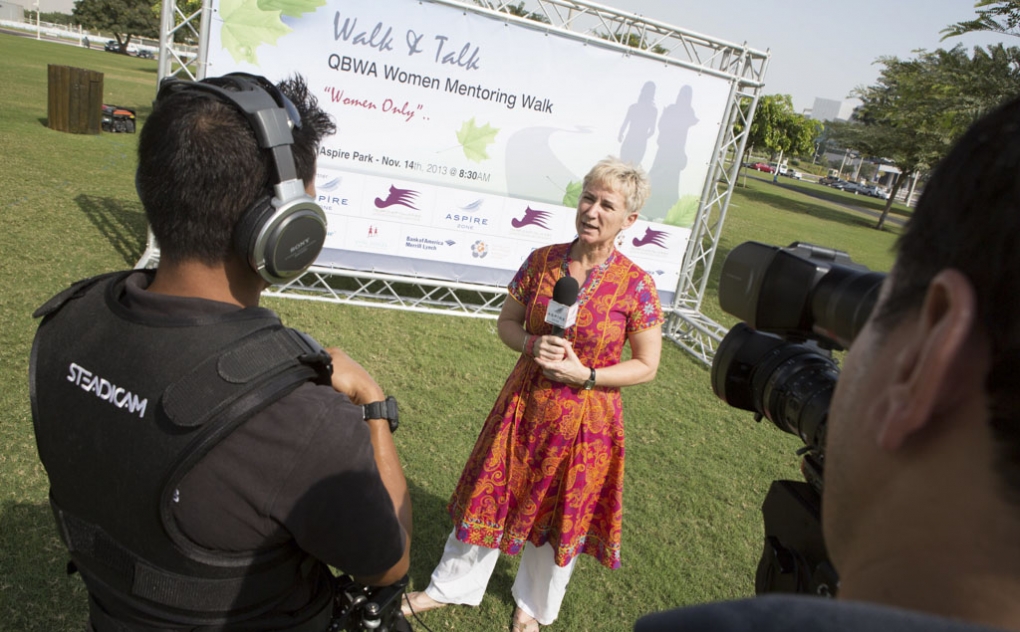Perspectives on Mentoring
Zoë Dean-Smith, Senior Director, Global Programs
Mentoring costs nothing, apart from time. It is one of the most powerful gifts that one person can give to another and there is a place for mentorship in every society, at every level.
There is enormous value to be gained through mentorship.
Fundamentally, mentorship is an exchange. It has elements of giving and receiving on both sides. Mentors appreciate being offered the opportunity to give back and share their own best practice. This, in turn, helps the mentee to grow, to take that next big step beyond their comfort zone. Ideally, a mentorship pair develops a reciprocal relationship in which the mentor is also given an opportunity to reflect on her/his own and others’ leadership styles.
Secondly, mentoring is a relationship that improves both leadership and career growth. Learning from someone else’s best practice allows a mentee to bypass some unnecessary and possibly expensive business lessons. It gives the mentee the opportunity to see things beyond their own experience, to see a bigger or a different picture and to receive an impartial and trusted perspective. Within an organization, mentorship allows people to reach their fuller potential as an individual. An unexpected outcome of mentorship can include the opening up of networks, where the mentee is offered opportunities to connect with people outside their own environment.
Historically, generations of men have mentored and sponsored the next generations of men and boys. These relationships have proved to be so effective that it was time to apply and expand this investment to women. For women, particularly in the developing world, mentorship is a new and growing practice.
Within the Global Ambassadors Program (GAP), Vital Voices brings a global and trusted network of women leaders committed to investing in and supporting their own growth and that of others. For Bank of America, the program gives female executives within the Bank the opportunity to engage with women leaders from around the world for whom mentoring is a new and growing practice.
The Global Ambassadors Program has worked with 64 mentee women leaders in business, social enterprise and non-profit work from 33 countries across the developing world. These women come from different cultures and different societal challenges, the public and private sectors as well as NGOs and are all united by a set of common missing elements in both their leadership and career growth. The Global Ambassadors Program has addressed that gap by creating a new model, with women mentoring women as its backbone. This model is robust and holistic. Three elements that make this model unique:
- The mentorship itself and includes one-on-one, group and peer mentoring.
- We emphasize strategic planning, financial management, human resource management and communications in our business trainings.
- Personal development and goal setting outside of the work arena are integrated into the program.
Since the beginning of GAP, we have witnessed the development of a number of extraordinary relationships and unexpected networks. For example, when Brazilian mentee Karla Borges participated in the program in Sao Paolo in June 2013, her mentorship goals included wanting to contribute to a better society, a better country. Her belief was that by empowering women, we can collectively increase the number of individuals working for change. Within two months after the program, Karla had created a legal support network for five of her fellow mentees in Brazil, had visited four of their organizations and made fundraising introductions to the fifth organization.
We have also seen multiple facets of business transformation. When Indian business owner, Sarika Bhattacharya, attended the GAP in October 2012, her biggest challenge was balancing her career as a human resources consultant with her passion for women’s empowerment. She had both a consulting firm and an NGO. After the program, rather than dividing her energy between the for-profit and non-profit sectors, Sarika expanded her business to include diversity consulting. She now consults for such companies as Bank of America, Pepsico and Intel. In addition to this, Sarika has introduced an annual women’s leadership conference called I Inspire. Read an update about Sarika here.
For a Vital Voices woman leader who has been mentored, her sustaining gift as a part of GAP is to return home armed with increased skills and thinking and to improve the conditions of her business/organization.
For the globally successful women leaders who serve as mentors, the program offers the opportunity to change mindsets. By traveling to different parts of the world, mentors gain fresh insights into different cultures and business norms.
Each Bank of America woman leader who has served as a mentor has claimed that through this experience, she has shared best practice, questioned some of her own learnings and has gained new insights into the conditions of women in different cultures. Read about Jennifer Taylor, chief operating officer for Bank of America’s Europe, Middle East and Africa (EMEA) region, and how she’s connected to the Global Ambassadors Program from South Africa to India to Qatar.

